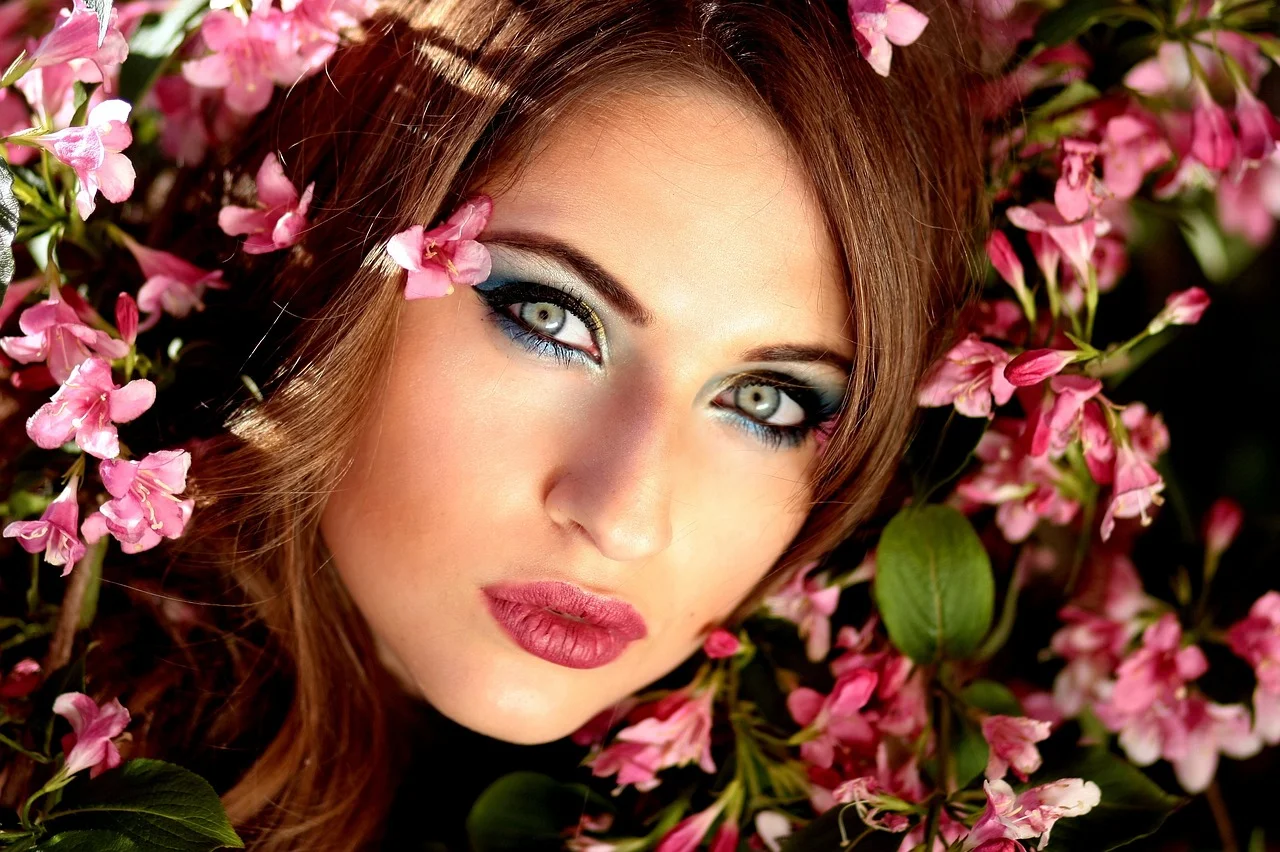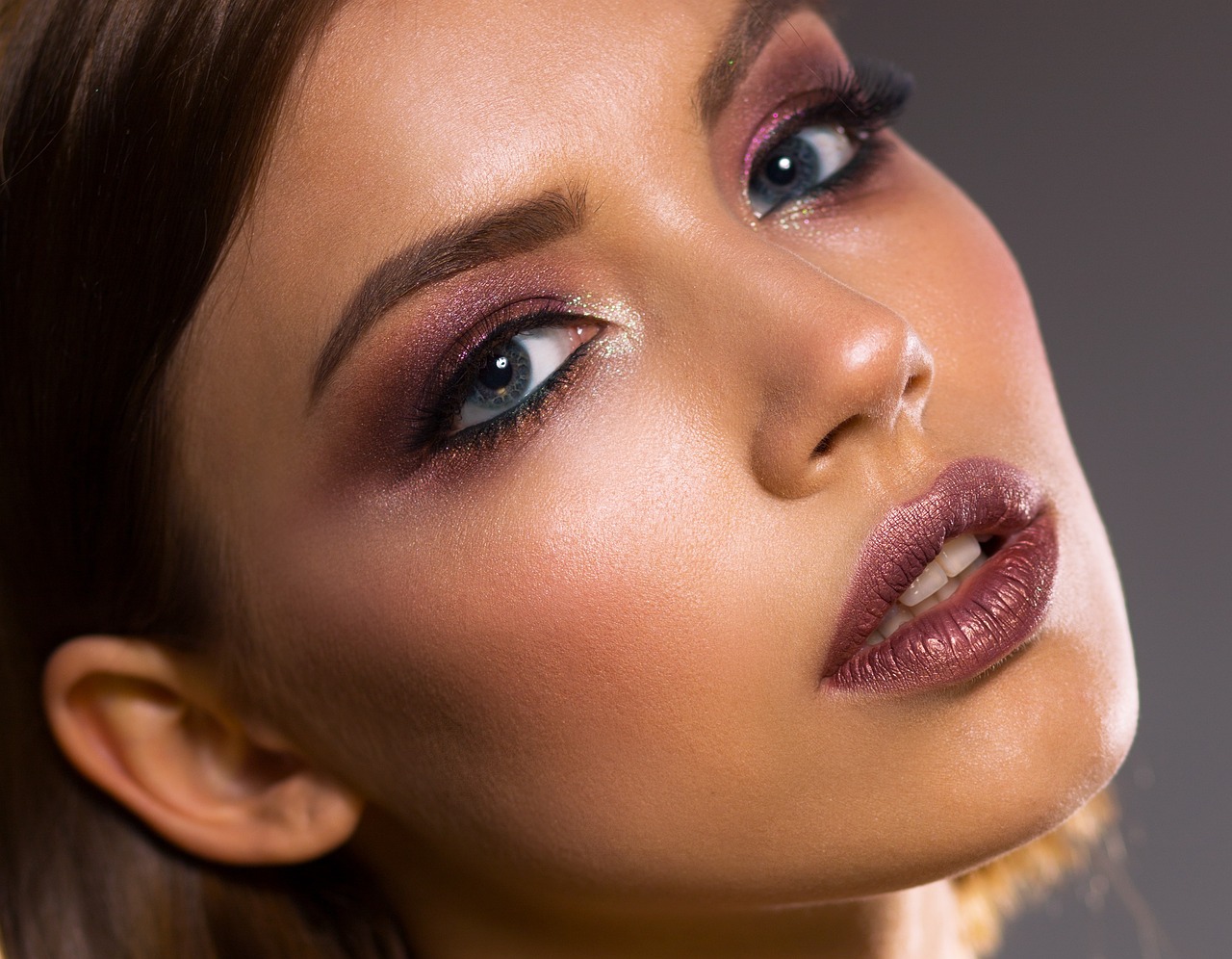
TIn a world where flawless selfies and heavily edited magazine covers reign supreme, the pressure to look picture-perfect is undeniable. Makeup has become an essential tool in our daily routines, promising to enhance our features and mask any imperfections. But what if we challenged this societal norm? What if we embraced our natural beauty and realized that we don’t really need makeup? This article explores the liberating concept of going au naturel, unveiling the empowering reasons why you can confidently ditch your makeup bag and embrace your authentic self. Makeup or no makeup: the science behind first impressions.
The power of first impressions

First impressions can be incredibly powerful. In fact, studies have shown that it only takes a mere seven seconds for someone to form an initial opinion about another person. This quick judgement is based on various factors such as appearance, body language, and grooming choices. While many may argue that first impressions are superficial and shouldn’t hold much weight, research suggests otherwise.
Do not miss: Discover the Perfect Gemstone to Elevate Your Fashion Game!
Psychologists have found that our brains are hardwired to categorize people within seconds of meeting them as a way to make sense of the world around us. These snap judgments can greatly impact how others perceive us and even affect our personal and professional interactions. It’s fascinating to consider the immense influence that a single glance or handshake can have on how we’re perceived by others.
Furthermore, studies indicate that first impressions tend to be remarkably accurate in gauging someone’s personality traits such as confidence, trustworthiness, and likability. Although these assumptions may not always be entirely correct, they do shape the way we respond and interact with individuals in those crucial initial moments of acquaintance. So before we dismiss the significance of first impressions, maybe it’s worth pondering just how much power a simple hello holds when it comes to shaping our relationships and opportunities.
The role of facial features in initial judgments

When it comes to making initial judgments about others, our facial features play a significant role. Research has shown that certain characteristics can influence how we perceive someone and make snap judgments about their personality and other traits. For example, the symmetry of our faces is often associated with beauty and attractiveness. People with more symmetrical faces are typically rated as more physically attractive and are perceived as healthier individuals.
But it’s not just symmetry that matters. Specific facial features can also influence how we are perceived by others. For instance, the size and shape of our eyes can communicate various emotions and personality traits. Larger eyes tend to be associated with innocence, while smaller eyes may convey shrewdness or intelligence. Similarly, the position of eyebrows can greatly affect how approachable or dominant we appear to others.
These findings highlight the intricate nature of face perception and illustrate just how quickly we form judgments based on someone’s appearance alone. It is essential to recognize that these initial evaluations do not necessarily reflect an individual’s true character but rather our innate tendency to rely on visual cues when meeting new people. By understanding these biases, we can strive for a more open-minded approach in deciphering one another beyond mere facial features\xe2\x80\x94a reminder that looks aren’t everything when it comes to forming meaningful connections.
The impact of makeup on perceived attractiveness

Makeup has long been used as a tool to enhance one’s physical appearance. However, its impact on perceived attractiveness goes beyond just surface-level enhancements. Research shows that makeup can influence how others perceive a person’s traits and personality. For example, a study found that women wearing makeup were rated as more confident and sociable compared to their bare-faced counterparts. This suggests that makeup not only enhances physical features but also signals positive qualities and can potentially boost one’s perceived attractiveness.
Make sure to read: How to Choose the Right Makeup.
However, it is important to note that the impact of makeup on perceived attractiveness may vary across different cultures and contexts. A study conducted in East Asian countries, for instance, found that heavy makeup was associated with lower levels of trustworthiness among participants. This suggests that cultural norms and expectations play a significant role in shaping how makeup is perceived. It highlights the need for considering cultural factors when assessing the impact of cosmetics on attractiveness.
In conclusion, while makeup undeniably alters our appearance on a superficial level, its effects reach far beyond skin-deep changes. Makeup can influence perceptions of confidence and sociability, signaling positive qualities to others. However, these effects are not universal and may vary across different cultures and contexts. By recognizing the complex relationship between makeup and perceived attractiveness, we can better understand the science behind first impressions in relation to cosmetic enhancement.
The psychological effects of wearing makeup

Wearing makeup can have a profound impact on our psychological well-being, often boosting confidence and self-esteem. The act of applying makeup allows individuals to express their creativity and enhance their natural features. Studies have shown that wearing makeup can lead to an increased positive mood and improved perception of oneself. When we feel good about how we look, it can contribute to a sense of empowerment and make us believe that we are capable of achieving anything.
However, the reliance on makeup for validation can also have negative psychological effects. Some individuals may become overly dependent on wearing makeup as a means to feel accepted or beautiful. It leads to feelings of inadequacy when they are not able to wear it. Additionally, the pressure to conform to societal beauty standards can create anxiety and low self-esteem if one feels like they don’t measure up without the help of cosmetics. It is important to find a balance between using makeup as a tool for self-expression and recognizing our inherent worth beyond physical appearance.
Ultimately, the psychological effects of wearing makeup depend on individual experiences, mindset, and underlying motivations. While it can undoubtedly boost confidence in the short-term, true self-acceptance should not be solely reliant on external factors such as cosmetics. It is essential to cultivate inner confidence rooted in embracing our natural selves. The truth is that beauty comes in various forms and extends far beyond what meets the eye.
Cultural and societal influences on beauty standards

In today’s globalized world, it’s evident that beauty standards are heavily influenced by cultural and societal factors. What is deemed attractive in one society may not hold the same value in another. For example, in Western cultures, a slim figure is often seen as ideal. While in some African cultures, curvier bodies are considered more beautiful. These contrasting standards demonstrate just how subjective and malleable our perception of beauty can be.
Furthermore, societal influences play a significant role in shaping beauty ideals. Advertisements, social media platforms, and even popular culture all contribute to promoting certain looks as desirable or aspirational. The portrayal of flawless skin tones or perfectly contoured faces bombards us daily through various media outlets. This constant exposure can lead to individuals feeling pressured to conform to these predetermined ideals and investing considerable time and effort into altering their appearance.
However, it’s important to remember that these beauty standards are not absolute truths. They are rather constructed concepts that vary across time and place. By understanding the cultural and societal influences on beauty standards, we can challenge narrow definitions of attractiveness. So we can embrace the diversity of human appearances.
The importance of authenticity and self-expression

Authenticity and self-expression are essential in establishing genuine connections with others. While makeup can enhance one’s appearance, it is vital not to rely on it as a mask to hide behind. True beauty lies in embracing our unique selves and expressing who we are without fear of judgment. When we allow our authentic selves to shine through, we attract people who resonate with us on a deeper level. So we create relationships built on trust and mutual understanding.
Self-expression goes beyond just physical appearance. It extends into every aspect of our lives, from the way we communicate to the choices we make. Embracing our individuality allows us to break free from societal expectations. We can express ourselves authentically, whether through art, style, or personal beliefs. It is through this expression that we empower ourselves and inspire others to do the same. By being true to who we are, we open up a world of possibilities for growth, connection, and fulfillment.
In conclusion, while makeup may have its merits in enhancing one’s appearance or boosting confidence when used consciously, its real power lies in helping individuals express their authentic selves rather than conforming to societal norms or seeking validation. Authenticity fosters genuine connections and allows for personal growth by stepping out of comfort zones. By embracing our true selves fully – inside and out – we become beacons for self-expression and inspire others along the way. So next time you find yourself debating between makeup or no makeup, remember that your authenticity is your most beautiful asset.
Conclusion: Balancing personal choices and societal expectations

In conclusion, the decision to wear makeup or go bare-faced ultimately comes down to a delicate balance between personal choices and societal expectations. While personal preferences play an important role in how we choose to present ourselves. It is hard to deny the influence of societal pressures and beauty standards. The individuals have to reflect on their motivations behind their choices. It ensures they are not solely driven by external expectations.
Finding this balance can be a complex process. To navigate societal norms while staying true to oneself can sometimes feel like walking a tightrope. However, it is crucial to remember that our worth should never be determined solely by our appearance. The content of our character and the way we treat others are more important. Striving for authenticity and embracing self-expression should always prevail over conforming to unrealistic beauty ideals.
Ultimately, whether you decide to wear makeup or go without it should be an act of empowerment, allowing you to showcase your creativity and enhance your confidence. Embracing both personal choices and society’s expectations involves acknowledging that there is no one-size-fits-all answer.